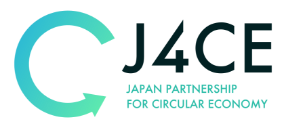Download: J4CE Noteworthy Cases/Initiatives 2024
Download: J4CE Noteworthy Cases/Initiatives 2022
Download: J4CE Noteworthy Cases/Initiatives 2021
Search for cases
* Multiple conditions can be specified
SEARCH
SUBCATEGORY
* Click here for examples of initiatives by each company.
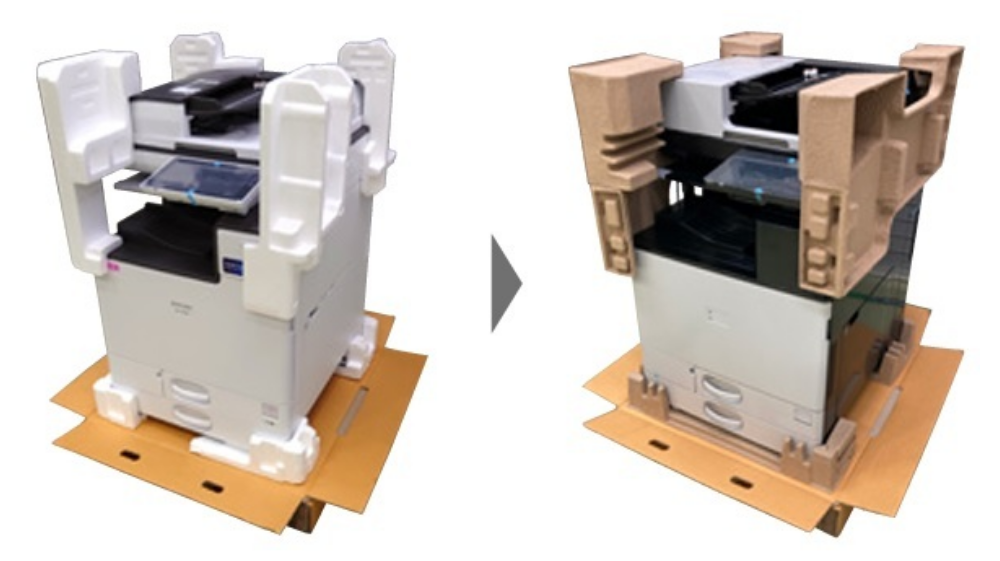
Switching from fossil resource-derived packaging materials to paper packaging materials for A3 MFP
RICOH Company, Ltd.
Until now, expanded polystyrene (EPS), a material derived from fossil fuels, has generally been used as packaging for transporting MFP products. The Ricoh Group is working to switch from EPS to recyclable paper packaging.
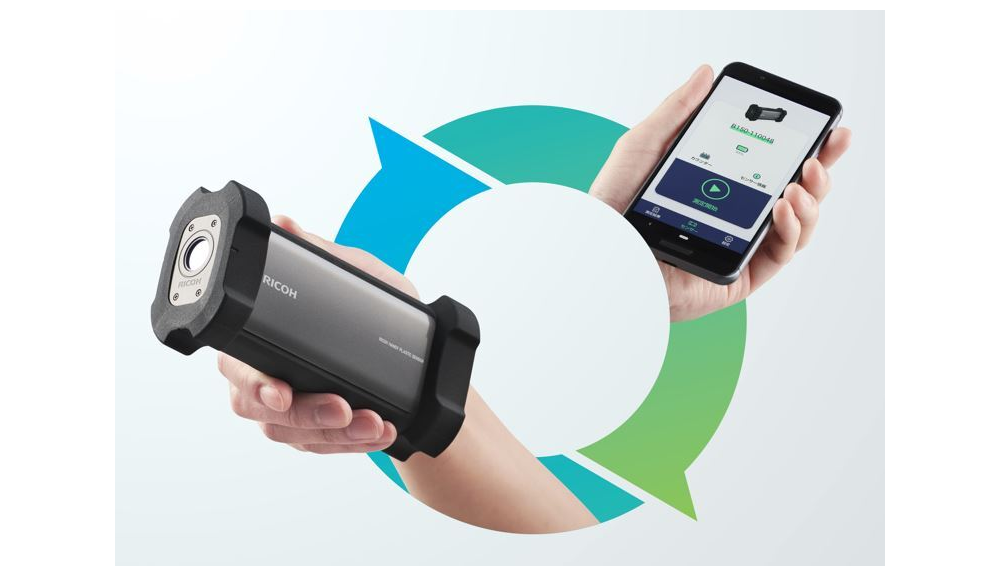
Recycling initiative using a Handy plastic sensor
RICOH Company, Ltd.
The B150 is a handy sensor that uses near-infrared spectroscopy to distinguish resins.

Building the circulation-based model throughout the product life cycle by realizing and commercializing the recycling system of used disposable diaper
Unicharm Corporation Shibushi City,Kagoshima Prefecture Osaki Town, Soo District, Kagoshima Prefecture SORECYCLECENTER
In May 2016, Unicharm has joined the "Used Disposable Diaper Recycling Promotional Council" composed of 18 groups and individuals with an initiative of City of Shibushi, Kagoshima, and, on November 1, 2016, we entered into a three-way agreement with City of Shibushi and So Recycle Center on collection and recycling of used disposable diaper (The agreement was then expanded to four-way on April 2, 2018, as Osaki Town joined us.).
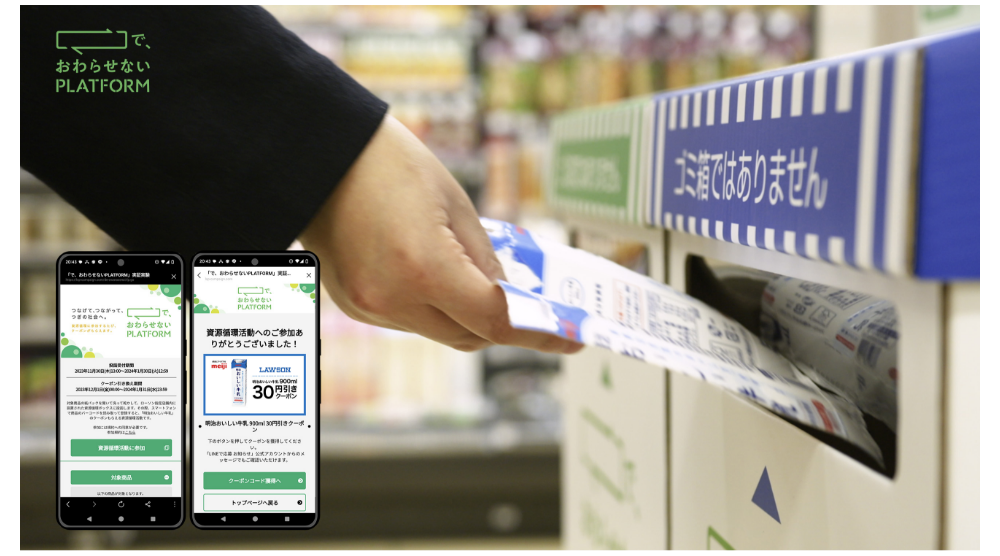
Circulation platform “De, owaresenai Project”
DENTSU INC. DENTSU PROMOTION PLUS INC. Lawson, Inc. Meiji Co., Ltd. Nakadai Holdings, Inc.
The aim of the project is to confirm and identify issues related to changes in student awareness and behaviour in collection and recycling, as well as the effects of sales promotions, by utilising the circular platform developed by the Dentsu Group for the social implementation of the circular economy.
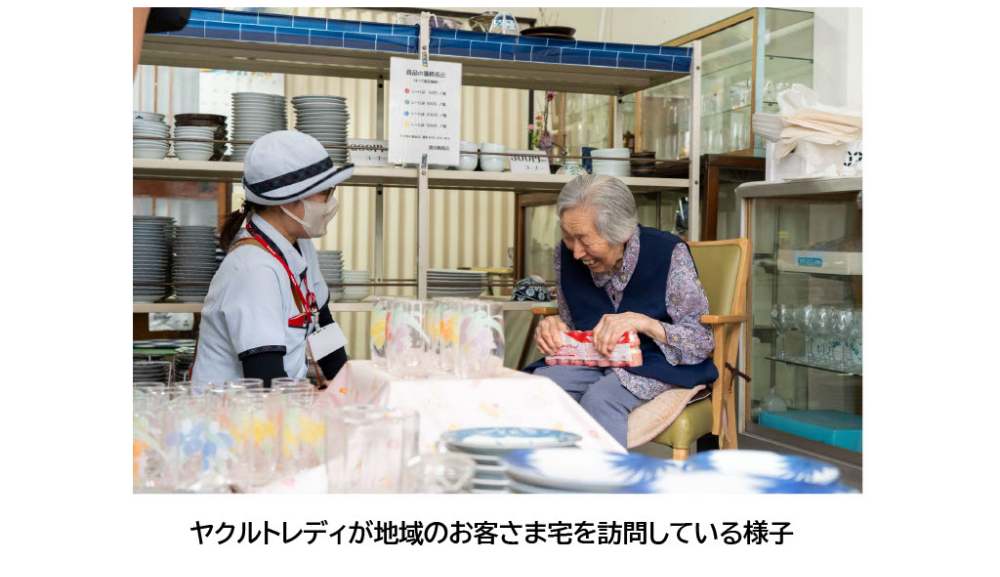
Proof of Concept Promoting Reuse in Local Communities With Mercari, Yakult Sanyo, Akitakata City, and Miyoshi City
Mercari, Inc. Yakult Sanyo Inc. Akitakada City, Hiroshima Prefecture Miyoshi City, Hiroshima Prefecture
This is a collaborative project between Mercari, Inc., Yakult Sanyo Corporation, and Akitakata City and Miyoshi City of Hiroshima Prefecture. Together, we started a proof of concept where we collect usable items that people no longer need from Akitakata City and Miyoshi City and sell them on Mercari’s e-commerce platform Mercari Shops. So far, Mercari has partnered up with a total of 38 local governments across Japan (as of July 8, 2024) to sell their unwanted items on Mercari Shops.

" Paper Cup to Paper Cup" - Recycling of beverage paper cups
Nippon Paper Industries Co., Ltd. Japan Airlines Co.,Ltd. TOKAN KOGYO CO.,LTD.
This is the first project in Japan to recycle used beverage paper cups back into beverage paper cups. In order to reduce waste and increase recycling of paper resources, three companies in the supply chain collaborated to endeavor the horizontal recycling from paper cups to paper cups.

Promoting elimination of waste (release paper), improvement of production efficiency at customers’ factories, and resource recycling support after use with the “Heat Labeling System,” which is a thermal bonding method that does not require release paper!
KOTOBUKI SEIHAN PRINTING CO.,LTD
Tack labels, to which a glue agent is applied in advance, are utilized by removing the labels from the label release paper during the process of attaching the labels to the products, and the release paper portion is no longer needed. The amount of release paper used by the entire domestic manufacturing industry is said to amount to 116 million m2 per month, most of which is disposed of or incinerated without being recovered or reused as a resource. We have developed a heat label that uses a heat-sensitive adhesive method that does not require release paper, even though it is pre-applied with a glue, thereby eliminating the need for release paper itself, which accounts for about 40% of the entire label. By proposing solutions to reduce the use of product resources from the design stage and solve the issues faced by stakeholders at each stage, we are working with our customers to reduce waste and costs incurred during the production of release paper, eliminate waste (label release paper) generated after label application, improve work efficiency during production, and support resource recycling after use.

“Resource recycling of waste materials” <Printed materials that cannot be used as finished products (waste paper)>
KOTOBUKI SEIHAN PRINTING CO.,LTD
In the printing process, registration, color adjustments, and other steps generate printed materials that cannot be used as finished products (waste paper). Waste paper generated at our company is separated according to the type of material used, shredded to prevent customer information from being leaked, and then collected by recycling companies. After being recycled into raw materials at each recycling company, the waste paper is delivered to paper manufacturers, where it is regenerated as new products or as refuse derived fuel (RPF) for making products.

Recycling of used backing paper (release paper) for sticker and label products
Japan-Earth Conscious Labeling
The following members of the supply chain in this resource recycling project are the constituent members. (1) Companies using stickers and labels: Proper separation of release paper and proper shipping Intermediate treatment companies: Proper collection and transportation (3) Recyclers: Utilization of release paper as a resource (4) Base material manufacturing companies: Development and manufacture of base materials that are easy to recycle (5) Printing and processing companies: Adopt easy-to-recycle base materials, print, process, sell, and promote recycling.
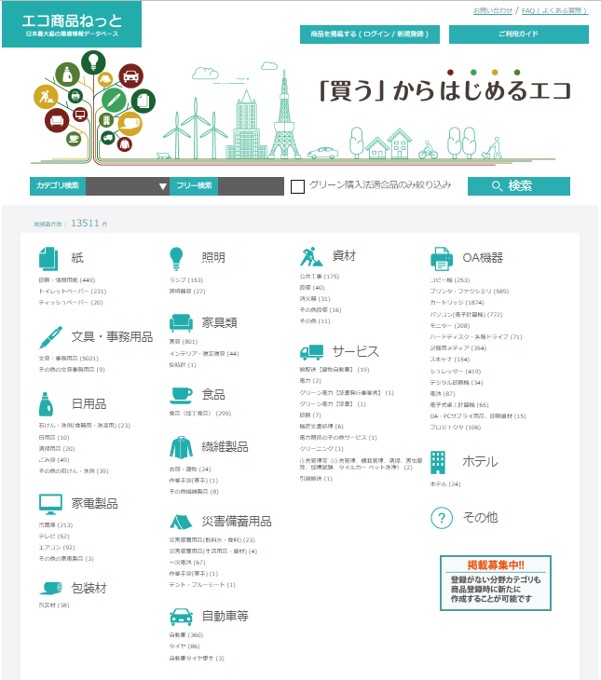
Eco-products Database
Green Purchasing Network (GPN)
The Eco-products Database is the largest database that discloses environmental information about products and services along the Green Purchasing Guidelines.
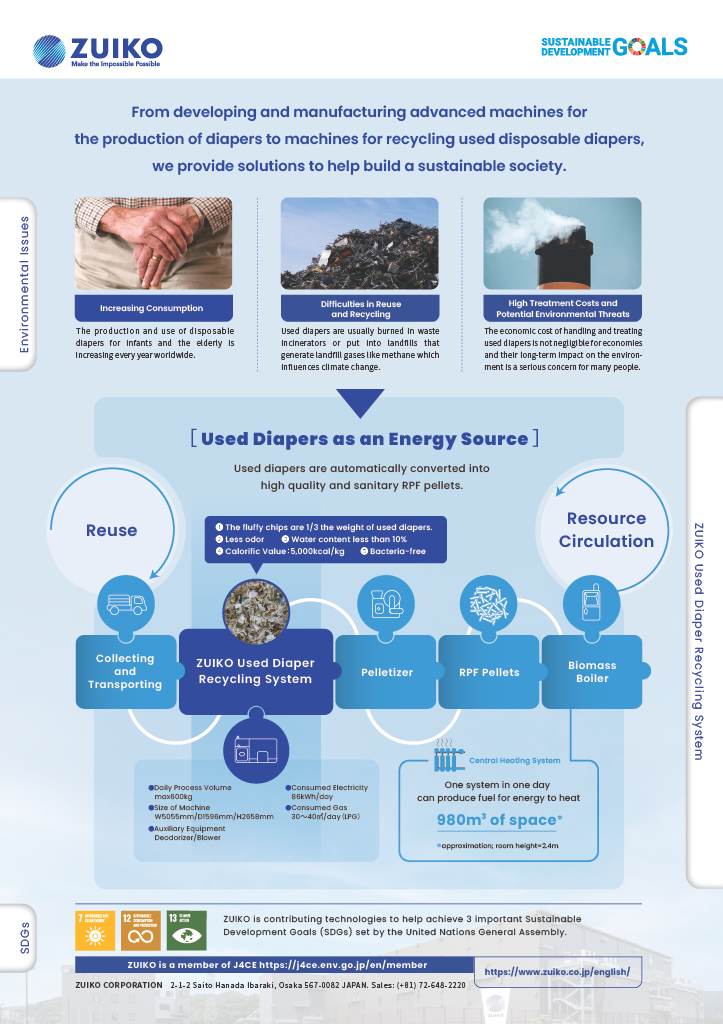
Used Diaper Recycling Project
ZUIKO CORPORATION
We started activities regarding used diaper recycling systems in 2021 out of concern that diaper usage was continuouly growing and that incinerating or using landfills only create CO2 or harmful greenhouse gases such as methane.
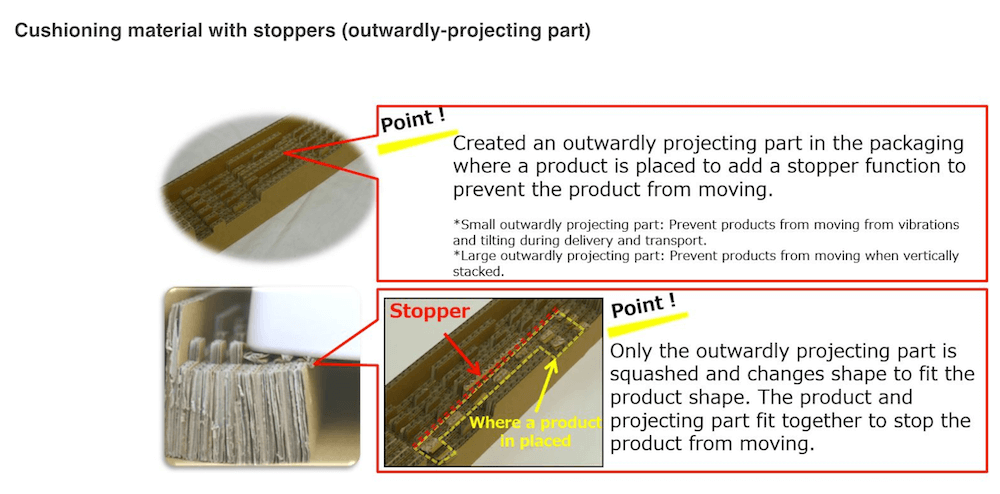
Initiatives to Reduce Packaging Materials
TOTO. LTD
Development of crush-proof cushioning technique achieved in one single cardboard for products of different sizes Sanitary ware is hard and less prone to scratching and dents; on the other hand, such products are heavy and can be fragile.
